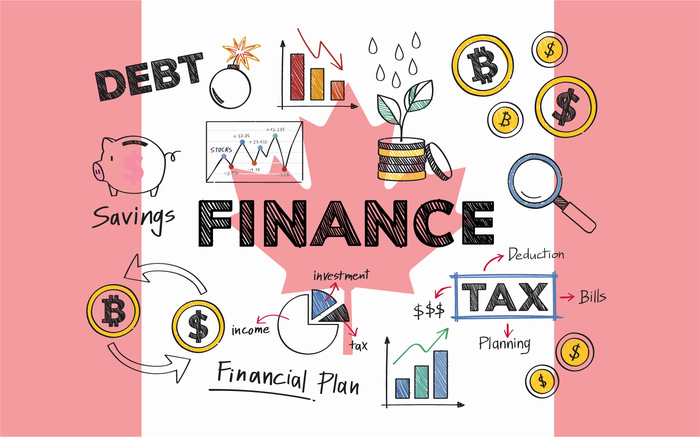Saving early is the foundation of long-term wealth building. With a little foresight and some discipline, you can create a life where you’re not constantly worried about money. In this article, we’ll explore why saving early is the key to building long-term wealth.
Saving early is one of the most powerful ways to build long-term wealth. It’s a simple concept but one that is often overlooked or undervalued. By saving early, you can take advantage of the power of compound interest, which means that your money grows exponentially over time. This can make a huge difference in the wealth you accumulate throughout your lifetime.
This article will explore why saving early is so important for building long-term wealth. We’ll discuss the benefits of starting early, provide strategies for saving early, and share real-world examples of the power of early saving. We’ll also address common barriers to saving early and provide tips for overcoming them. By the end of this article, you’ll better understand why saving early is so important and how you can start building long-term wealth today.
The Benefits of Starting Early
When it comes to building long-term wealth, starting early is key. Here are some of the benefits of starting to save early:
Compound Interest
One of the biggest advantages of starting early is the power of compound interest. When you save money, you earn interest on that money. Over time, your interest also earns interest, meaning your money grows exponentially. This can make a huge difference in the wealth you accumulate over time. For example, if you save $100 a month for 30 years at a 7% annual rate of return, you’ll end up with over $100,000. However, if you wait 10 years to start saving and only save for 20 years, you’ll end up with less than half that amount.
More Time to Weather Market Volatility
Another benefit of starting early is having more time to weather market volatility. The stock market can be unpredictable, and there will inevitably be ups and downs along the way. However, if you have a long-term investment horizon, you can ride out these fluctuations and still come ahead. Starting early gives yourself more time to recover from short-term losses and take advantage of long-term gains.
Lower Required Savings Rates
Starting early also means that you can save less money overall to achieve your long-term goals. This is because you have more time for your money to grow and compound. For example, if you start saving for retirement at age 25, you may only need to save 10% of your income from reaching your retirement goals. However, if you wait until age 35 to start saving, you may need to save 20% or more of your income to achieve the same goals.
Reduced Financial Stress
Finally, starting early can also help reduce financial stress in the long run. By building a strong financial foundation early on, you’ll have more flexibility and security as you get older. You’ll be better equipped to handle unexpected expenses, changes in your career, or other life events that can cause financial strain. This can help you feel more confident and in control of your financial future.
Overall, starting early is one of the best things you can do for your long-term financial health. By taking advantage of the power of compound interest and giving yourself more time to weather market volatility, you can build a strong financial foundation that will serve you well for years to come.
Strategies for Saving Early
Saving early is important, but it can also be challenging. Here are some strategies for saving early and building long-term wealth:
Start Small
When saving, it’s important to start small and build from there. You don’t need to save a large percentage of your income right away. Instead, focus on building the habit of saving regularly. This might mean starting with just $20 a week and gradually increasing your savings rate over time.
Automate Your Savings
One of the easiest ways to save money is to automate your savings. This means setting up a recurring monthly transfer from your checking account to your savings account. By automating your savings, you’ll be more likely to stick to your savings plan and avoid the temptation to spend the money instead.
Take Advantage of Employer Match Programs
If your employer offers a 401(k) or other retirement savings plan with a matching contribution, take advantage of it. This is essentially free money that can help you build wealth even faster. Ensure you contribute enough to your plan to receive the full employer match.
Cut Back on Expenses
Another strategy for saving early is to cut back on expenses. Look for ways to reduce your monthly bills, such as negotiating a lower cable bill or cutting back on eating out. Use the money you save to build your savings and invest long-term.
Start a Side Hustle
If you’re struggling to save money with your current income, consider starting a side hustle. This might mean freelancing on the side, starting a small business, or picking up a part-time job. Use the extra income to build your savings and invest long-term.
Focus on Long-Term Goals
Finally, staying focused on your long-term goals is important when saving early. Remember that building long-term wealth takes time and patience. Avoid getting caught up in short-term gains or losses and stay committed to your long-term investment strategy.
By implementing these strategies, you can build long-term wealth and secure your financial future. Remember that saving early is one of the most powerful things you can do for your financial health, and it’s never too early or too late to start.
Real-World Examples of the Power of Saving Early
Saving early can have a significant impact on your long-term financial health. Here are a few real-world examples of how starting early can make a difference:
Example 1: The Power of Compound Interest
Compound interest is a powerful force that can work in your favor when you start saving early. Here’s an example:
Let’s say you start saving $200 per month at age 25 and continue doing so until you’re 65. Assuming an average annual return of 7%, your savings will have grown to approximately $536,000 by the time you retire.
Now let’s say you wait until age 35 to start saving. You’ll need to save more each month to reach the same goal of $536,000 by age 65. You’ll need to save around $475 per month to achieve the same result.
This example shows how starting early can help you take advantage of compound interest and achieve your financial goals with less effort.
Example 2: The Cost of Waiting
Delaying your savings can have a significant impact on your long-term financial health. Here’s an example:
Let’s say you want to save $1 million for retirement by age 65. If you start saving at age 25 and assume an average annual return of 7%, you’ll need to save approximately $381 monthly to reach your goal.
However, if you wait until age 35 to start saving, you’ll need to save around $820 monthly to reach the same goal. Waiting just 10 years to start saving has doubled the monthly savings required to reach your goal.
This example shows how waiting to start saving can significantly increase the amount you need to save each month from achieving your financial goals.
Example 3: The Importance of Starting Small
Starting small and increasing your savings over time can also have a significant impact on your long-term financial health. Here’s an example:
Let’s say you start saving $50 per month at age 25 and increase your savings by 3% each year. Assuming an average annual return of 7%, your savings will have grown to approximately $265,000 by the time you retire at age 65.
While $50 per month may not seem like much, increasing your savings over time can help you achieve your financial goals with less effort.
Example 4: The Value of Employer Matching
Many employers offer retirement plans that include matching contributions. This means that for every dollar you contribute, your employer will contribute a certain amount as well.
Here’s an example:
Let’s say your employer offers a 401(k) plan with a matching contribution of 50% of the first 6% of your salary that you contribute. If you earn $50,000 per year and contribute 6% of your salary ($3,000), your employer will contribute an additional $1,500. Over time, these matching contributions can add up and help you achieve your financial goals more quickly.
These examples demonstrate the power of saving early and the impact it can have on your long-term financial health. By starting early, taking advantage of compound interest, and increasing your savings over time, you can achieve your financial goals with less effort and stress.
Overcoming Obstacles to Early Saving
While saving early can have a significant impact on your long-term financial health, it can also be challenging. Here are some common obstacles to early saving and strategies for overcoming them:
Obstacle 1: Lack of Knowledge
Many people are not familiar with the basics of personal finance and investing. This lack of knowledge can make it difficult to know how and where to start saving.
Solution: Educate Yourself
Educating yourself about personal finance and investing can help you overcome this obstacle. There are many resources available, such as books, websites, and courses, that can teach you the basics of saving and investing. Start by reading some books on personal finance and investing, or take a course at a local community college or online.
Obstacle 2: High Debt
High debt can make it challenging to save early. If you have high debt, it can be difficult to find the extra money to save.
Solution: Prioritize Your Debt
If you have high debt, it’s important to prioritize paying it off before you start saving. Make a budget and cut back on unnecessary expenses to free up more money for debt repayment. Once your debt is under control, you can start saving.
Obstacle 3: Low Income
Low income can also make it challenging to save early. If you’re struggling to make ends meet, it can be difficult to find the extra money to save.
Solution: Start Small
Even if you can only save a small amount each month, it’s still worth starting early. Every little bit helps, and over time, your savings will grow. Start by setting a small savings goal and working to achieve it. As your income increases, you can increase your savings.
Obstacle 4: Lack of Discipline
Saving early requires discipline and commitment. It can be challenging to stick to a savings plan and resist the temptation to spend money.
Solution: Automate Your Savings
Automating your savings can help you overcome this obstacle. Set up automatic transfers from your checking account to your savings account each month. This way, you won’t have to think about saving, and the money will be automatically set aside.
Obstacle 5: Lack of Motivation
Saving early requires motivation and a long-term perspective. It can be challenging to stay motivated and committed to your savings plan over time.
Solution: Set Realistic Goals
Setting realistic goals can help you stay motivated. Start by setting a savings goal that is achievable but challenging. Break the goal down into smaller milestones, and celebrate each milestone you achieve. This will help you stay motivated and committed to your savings plan over time.
These strategies can help you overcome common obstacles to early saving and achieve your long-term financial goals. By educating yourself, prioritizing your debt, starting small, automating your savings, and setting realistic goals, you can start saving early and build long-term wealth.
In conclusion, saving early is a key factor in building long-term wealth. Starting early allows your money to grow and compound over time, giving you a significant advantage in achieving your financial goals. By starting early, you can take advantage of the power of compounding and achieve your financial goals with less effort and stress.
We discussed the benefits of starting early, strategies for saving early, real-world examples of the power of saving early, and ways to overcome obstacles to early saving. While saving early can be challenging, it is worth the effort in the long run. By taking small steps towards your financial goals now, you can achieve financial independence and security later in life.
Remember that saving early doesn’t have to be complicated. Start by setting a savings goal, creating a budget, and automating your savings. Educate yourself on personal finance and investing, and prioritize paying off high-interest debt. Even small steps can make a big difference in the long run.
So start today and begin building your financial future. The earlier you start, the more time your money has to grow and work for you.




